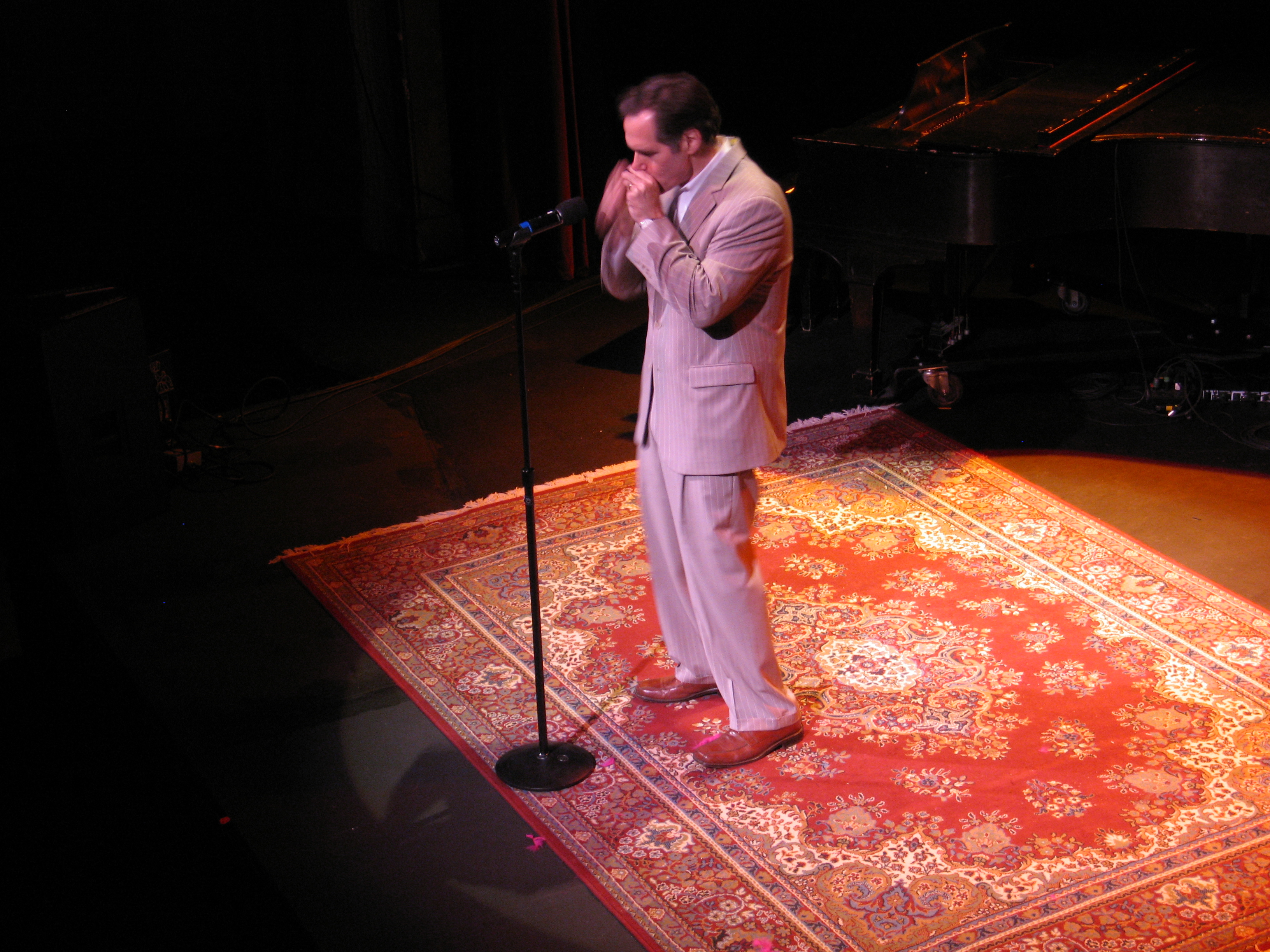
How to get the most from a jam session
Originally published in GuitarSam eZine Vol. 23
Finding Jam Sessions
Most local papers now list jams and open mics by style (folk, blues, rock, jazz, etc.). Signup times are usually pretty early, like 7:30-8:00 PM. Some places provide a backup band; usually you find out by calling ahead (which you should do anyway to verify the protocol for signup, how many tunes you’ll be allowed to play, etc.).
When I travel, I usually check the Internet for a website related to the local scene. The Association of Alternative Newspapers (AAN) lists websites for members at http://aan.org/smartconf/members_websites.phtml. I check that site every time I travel for the local alternative press weekly in the city I’m visiting.
Also regarding the Internet, I recommend joining a mailing list for musicians; there are lists for harp players (Harp-L; see the links at my website), bassists, guitarists, folkies, etc. You can then query other members on the list. I found a bluegrass jam in Salisbury, MD on my latest trip there by posting a question to the Harp-L list; it was a lot of fun, too.
Making the most of the jam
The most important objectives in most jam situations are:
- 1) to meet other musicians
- 2) to establish oneself as someone that the other musicians will be glad to see again.
Both objectives are accomplished by making the whole band (as opposed to oneself) sound really, really good. Usually that means not playing anything that really sucks, as opposed to playing something really great. (Sometimes it means not playing anything at all, if you can’t think of anything that will improve what’s already going on.) Ultimately, it means listening very carefully, and playing whatever makes everyone ELSE sound really good. If you make everyone else sound great, they will think you are really, really great, and you will be invited to play in lots of different situations.
Common Mistakes Made in Jam Sessions by Novices Include:
1) Playing in the wrong key.
Make SURE you know what key the band is playing in. When asked for the key of the song by a harp player, lots of guitarist will try to show off in a subtle way by telling the harp player what the key of the HARP is (in cross harp position), NOT the key of the song. Ask the guitarist what key he or she is playing in; let them know (gently, of course, and only if necessary) that you’ll figure out which harp to use.
2) Playing too loud or too much.
Harp players usually have to fight to be heard, so playing too loud isn’t usually an issue; but playing too much is a real danger. Listen carefully for the holes left by other players, and fill those, instead of filling up everything in sight. As an alternative, focus on one of the other instruments–guitar, bass, drums, keys, sax, etc.–and play something that reinforces that player’s parts.
3) Playing the same thing on every song.
If you only know two licks, play the first one on the first song, and the second one on the second song; then sit down and listen for a while, so you’ve got a chance to learn some new licks.
4) Playing a style that doesn’t fit with the style of the other players.
It may be exciting to some people to play their heavy blues licks over everything from bluegrass to modern jazz, but it basically stamps those people as hopeless amateurs to the people who came to play at a non-blues jam. Every style has boundaries, and when you play that style, you should respect those boundaires. (That doesn’t mean you have to stay within the boundaries all the time, but you should know what they are, and you should make it a point to step over the boundaries only when you really mean it.)
All that said, remember that this stuff is supposed to be fun. You’ll have maximum fun when the whole band sounds great, so spend at least as much time listening to the band as you spend playing. It’s amazing, by the way, how much respect you get from other players when they notice that you’re listening. I make a point of listening through the first 12 bars or so of every piece, every time I sit in, and the other musicians never fail to notice.
Finally, when you’re done for the night, don’t forget to get names and addresses for the musicians whose playing you really liked, and don’t forget to give them yours.
Tags In
Related Posts
Leave a Reply
You must be logged in to post a comment.
WHAT’S NEW
Categories
- Audio/Video
- Blog
- Blue Future
- Digitech RP Tricks and Tips
- Discography, CDs, Projects, Info, Notes
- Featured Video
- For the Beginner
- Gallery
- Hunter's Effects
- Hunter's Music
- Huntersounds for Fender Mustang
- Meet the Pros
- More Video
- MPH: Maw/Preston/Hunter
- My Three Big Contributions
- Player's Resources
- Pro Tips & Techniques
- Recommended Artists & Recordings
- Recommended Gear
- Recorded Performances
- Reviews, Interviews, Testimonials
- The Lucky One
- Uncategorized
- Upcoming Performances
- Zoom G3 Tips and Tricks